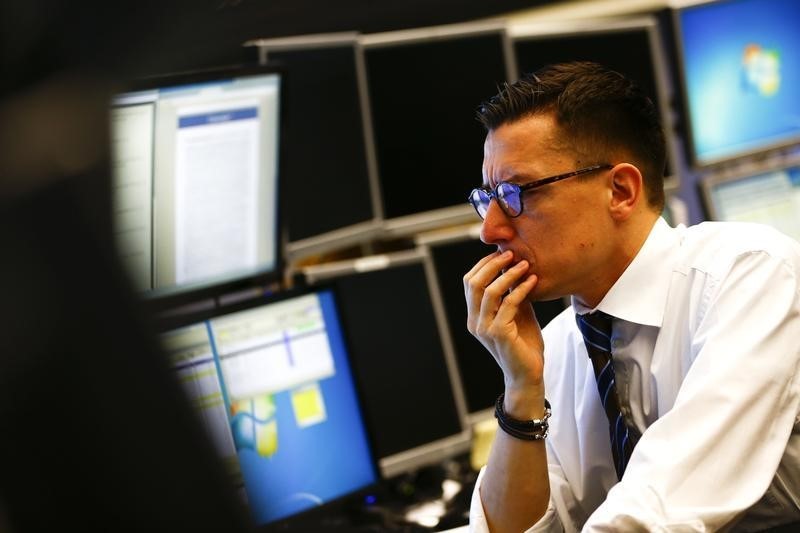Nvidia among investors in xAI’s $20bn capital raise - Bloomberg News
* Tracking the coronavirus: https://tmsnrt.rs/3aIRuz7
* World stocks rise on decline in new virus cases
* 3-mo/10-yr Treasury yield curve inverts
* Weak German data weighs euro
* Oil bounces during Asian session
(Updates throughout, changes byline, dateline)
By Sujata Rao
LONDON, Feb 19 (Reuters) - A decline in the number of new
coronavirus cases in China and mounting expectations for more
policy stimulus boosted global stock markets on Wednesday,
helping ease some of the alarm caused by an Apple revenue
warning.
China posted the lowest daily rise in new coronavirus cases
since Jan. 29, helping to lift the offshore-traded yuan to
two-week highs against the dollar and pushing the yen to a
one-month low CNH=D3 JPY=D3 .
Many view Chinese data on the virus with scepticism, but
sentiment was lifted by a Bloomberg report that Beijing was
considering cash injections or mergers to bail out airlines hit
by the virus.
Those steps would come after this week's cut in the
medium-term lending rate, which has fed expectations for a
reduction in the benchmark loan prime rate. A pan-European equity index .STOXX rose 0.4% to test
recent record highs and futures indicated a stronger open for
Wall Street Esc1 . Earlier, an MSCI index of Asian shares
outside Japan .MIAPJ0000PUS rose 0.5%. Japan's Nikkei index
.N225 gained almost 1%, helped by the yen's retreat.
Chinese mainland shares closed in the red, however
.CSI300 .
Edward Park, chief investment officer at Brooks Macdonald,
cited President Xi Jinping's latest commitment to meeting 2020
growth targets "This in itself implies there will be more fiscal and
monetary stimulus," Park said. "That's the real carrot for
markets today."
Tuesday's U.S. Empire manufacturing survey also reassured
investors the world's biggest economy was in good shape, he
said. That somewhat tempered worries caused by Apple's warning
AAPL.O it might miss sales targets because of pressure on its
supply chains. Market fears still kept gold trading above $1,600 an ounce
and U.S. 10-year Treasury yields some 35 basis points below
where they started 2020.
"There is some nervousness that economic data outside the
United States is not amazing," Park said.
China, the world's second-largest economy, is struggling to
get manufacturing back online after severe travel restrictions
were imposed to contain the coronavirus. Japanese exports fell
for the 14th straight month in January, data showed.
Growth worries were reflected in a dismal German investor
sentiment survey and the U.S. Treasury curve, where yields on
three-month bills rose above yields on 10-year notes -- an
inversion that's been a fairly reliable recession predictor
US3MT=RR US10YT=RR in the past.
The yield on three-month bills US3MT=RR stood at 1.5949%,
above the 10-year yield US10YT=RR of 1.5661%.
Investors are waiting to see what other growth-supportive
measures could be introduced, particularly in the euro zone.
They will also keep an eye on the minutes from the U.S. Federal
Reserve's last meeting.
The Fed has signalled that it's keeping an eye on the
coronavirus impact but has no intention of cutting interest
rates anytime soon. Many analysts reckon it could be forced to
change its mind.
"Given the risks we see to both growth and inflation falling
short of expectations this year, we still expect the Fed's view
on the need for additional rate cuts to shift later this year,"
NatWest analysts told clients, adding they were "not at this
time removing rate cuts from our forecast."
But the contrast between euro zone and U.S. economic
indicators are weighing on the euro, which has reached a
three-year low versus the dollar, though it rose back above the
$1.08 level it breached on Tuesday for the first time since 2017
EUR=EBS .
Brent crude futures LCOc1 rose around 0.7% to $58.12 a
barrel, as a reduction in supply from Libya offset concerns
about weaker Chinese demand.
